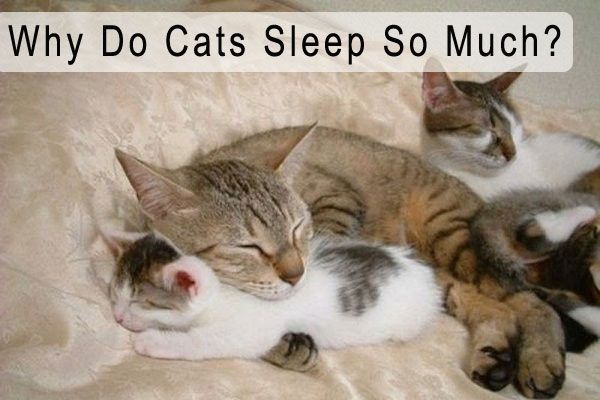Most of the pet parents may be having this common question about their cats – Why do their feline friends sleep so much. Cats are the great lovers of sleep and it’s god gift that they can fall asleep at any time of the day, under any circumstance and at any place. It seems that they have gained a great mastery over sleeping and are always ready to snooze off. Isn’t it strange? Well, it’s all the works of their body and genes that make them lay flat and dream on. Normally, a cat’s average sleep sticks around 16 to 18 hours, and it sometimes even reach the peak of twenty hours in a twenty-four hour period. There are numerous reasons why your furry feline spends about two-thirds of her life sleeping including your Lucy’s predatory hereditary instincts, weather conditions, crepuscular property, illness or age.
Hereditary Linage Qualities to Conserve Energy Naturally
Cats as predators are more inclined towards stalking, poaching and hunting. A good amount of eyes wide shut, felines can stock energy blocks efficiently to utilize in various activities. Though the cats have been domesticated, they carry the traits of big cats including running, climbing, tracking and hunting the prey. This requires a huge amount of energy, which your feline friends conserve by taking a sound sleep.
An Eye Open Scenario
Similar to people, cats do slide into light sleep and deep sleep patterns. When your Lucy is dozing, she will keep her body in a position to spring up into action just in a moment. When nothing to do around, they prefer to lie down and easily snooze into slow-wave sleep and can jump over heels even at the slightest movement around. During these short naps, your furry friend’s eyes remain little open as if she is peeping at you behind those half shutters.
With a calm environment around, your furry companion may slide into deep sleep from a light sleep. Her body relaxes, When they are in deep sleep, they curl up softly with their eyes tightly shut. This brief-long sleep pattern goes on, as they are highly active during twilight hours.
Time Challengers
Naturally programmed to be awake and active during the dim hours of dawn and dusk, cats are certainly crepuscular animals. At these wee hours, they are on their four legs ready to dart at their prey or for playful activities. During dawn, they are wakeful to have their share of breakfast while still you are in bed, and as the day advances, they happily curl up to go into dreamland while you are ready to bump at work. Similarly, during dusk they are active again to hunt or roam about with other felines. Unlike wild cats, our pets with whiskers have adapted to human society, they sloppily get into their warm beds at night.
In rare cases, some cats may be active at night, especially when they are kittens. Nevertheless, they easily adapt to sleep at night with human influence.
Weather Showers
Cats sleep pattern also varies and highly get affected with weather conditions. During cloudy and rainy days, they are less active and sleep more. They just doze off feeling lazy at all the times. If your Lucy is exclusively indoor dweller, the showers and cold waves can make her eyes droop down now and then.
Apart from these conditions, cats also fall asleep due to various conditions like obesity, illness, boredom or age. Being obese, cats feel more lethargic and fall sleep very quickly and similarly, it is true when their health conditions are not normal. Moreover, domestic cats are at ease when it comes to hunt for their prey as its rare living in a well-furnished house. As such, they feel bored and kill time sleeping whole day curling around.
Now, if the question arises about cats sleep you have a brief on their sleeping history. Nevertheless, be serious! In case, your furry feline sleeps too much than her usual sleeping regime. Visit a vet to find the hidden reason behind it.





